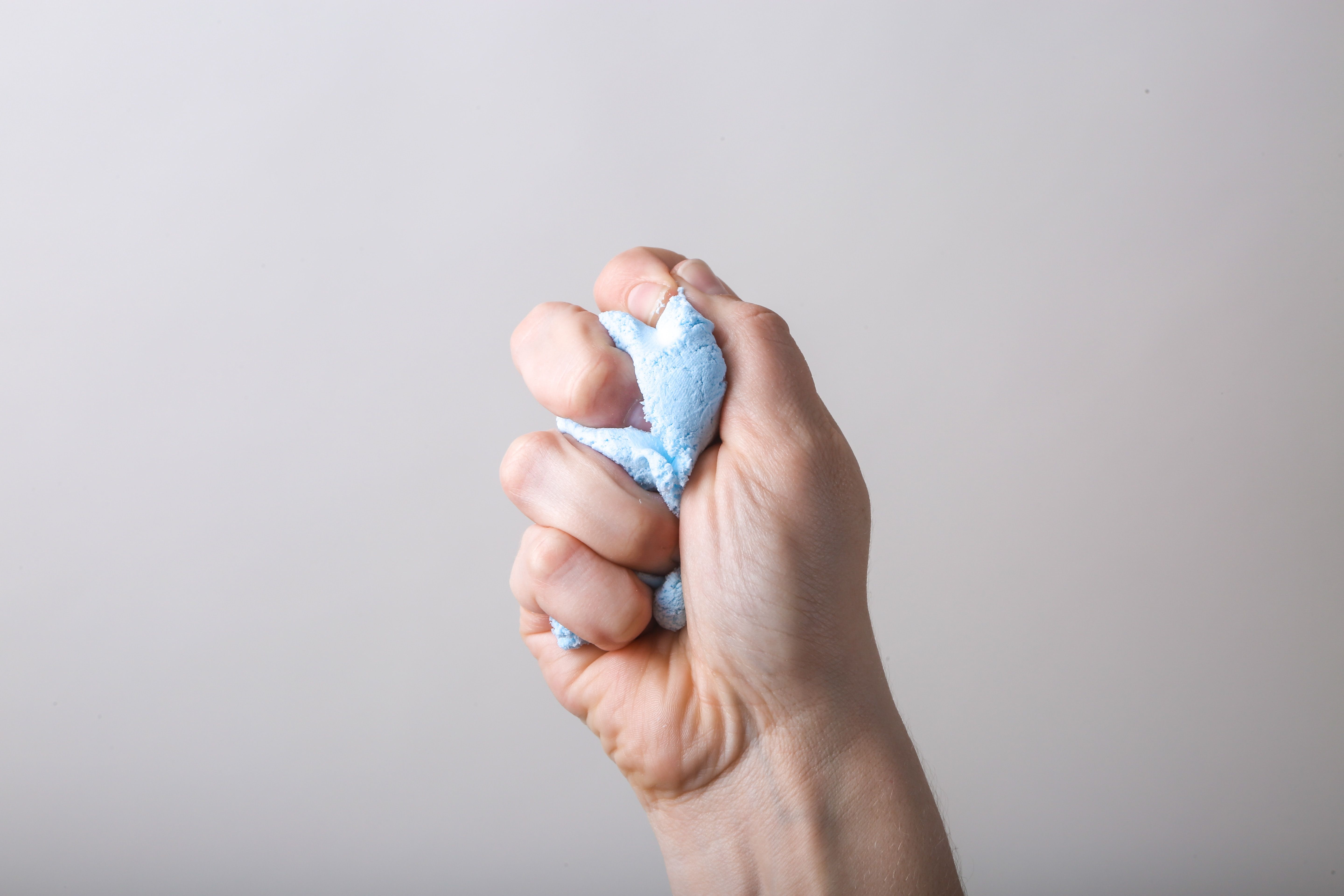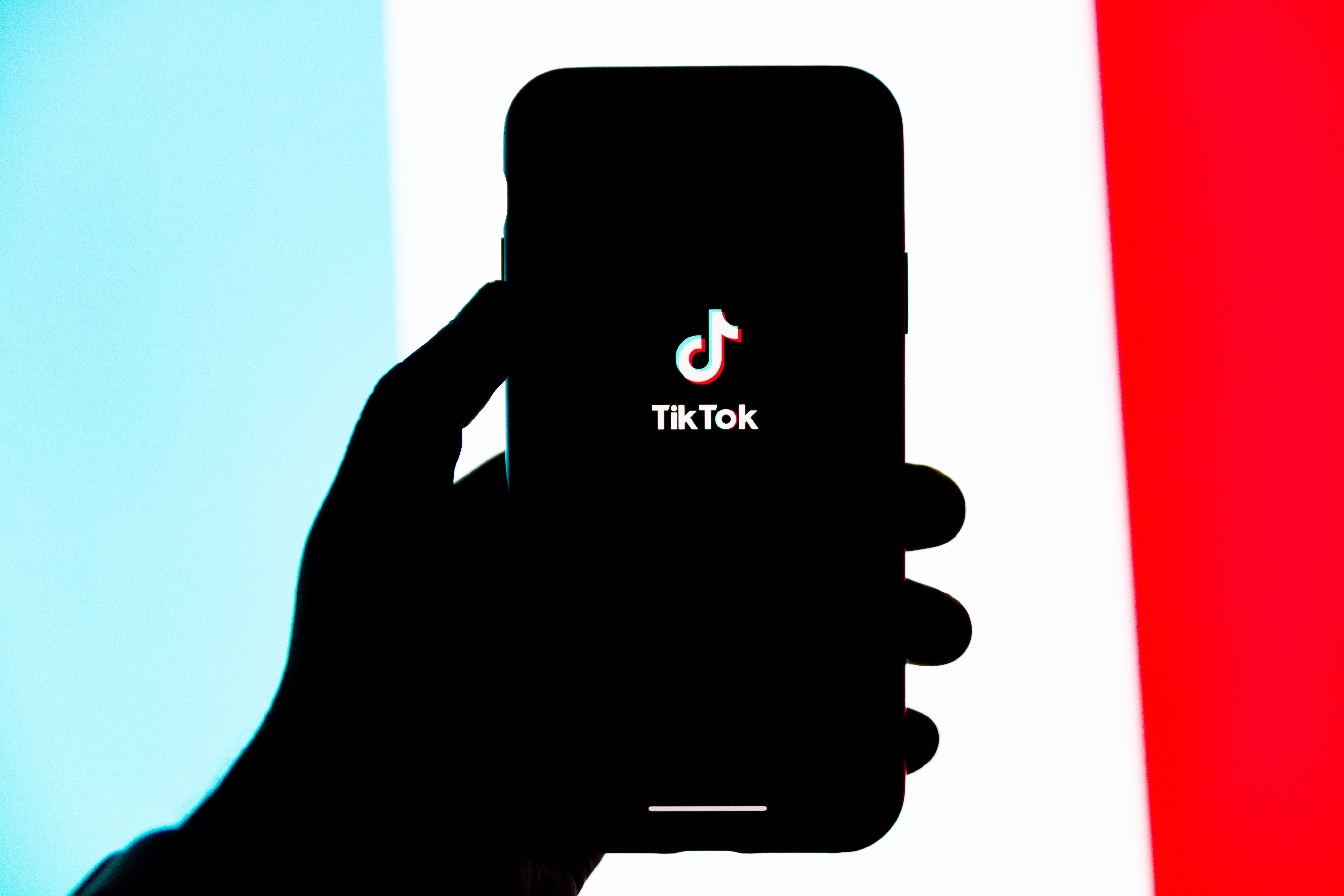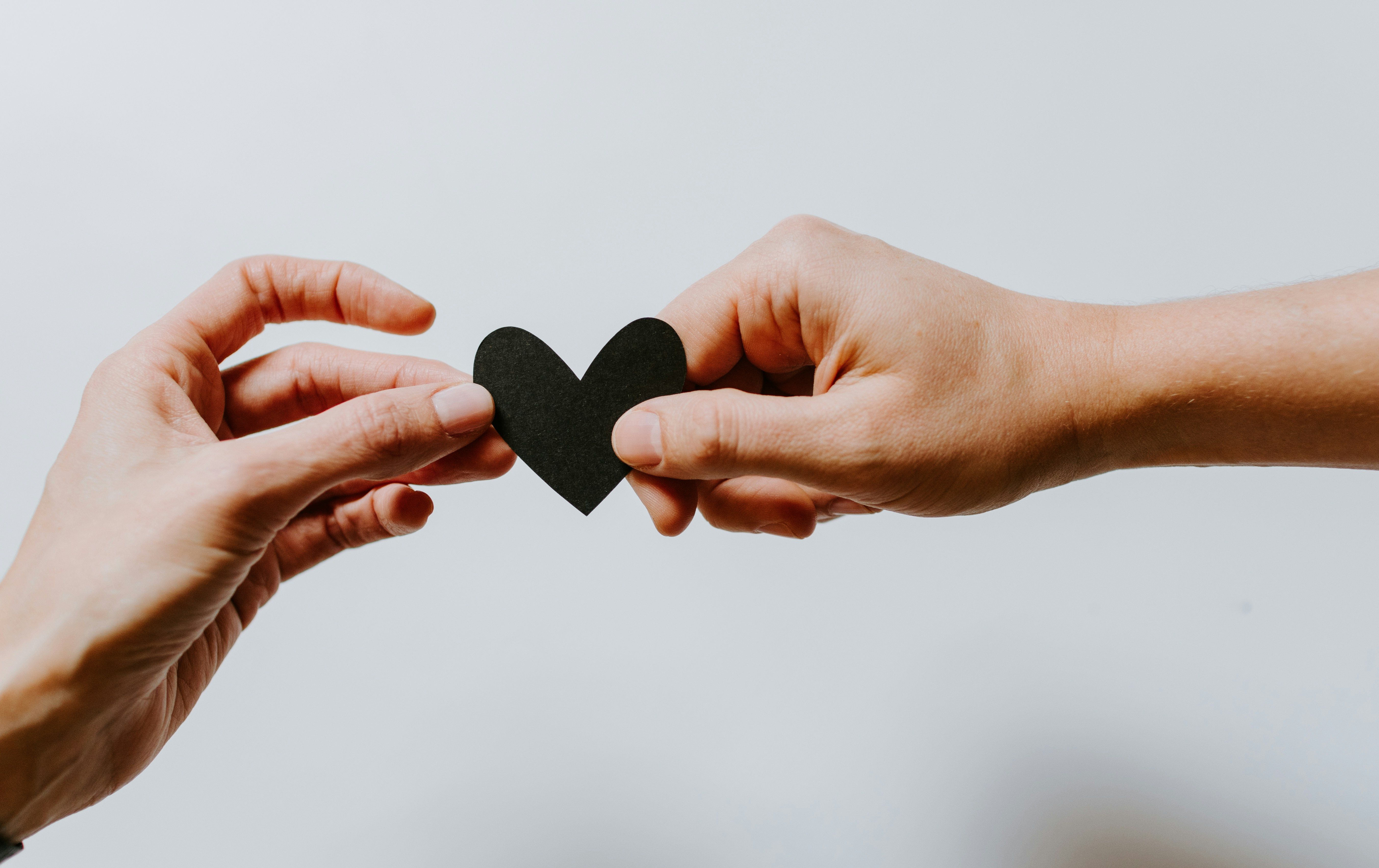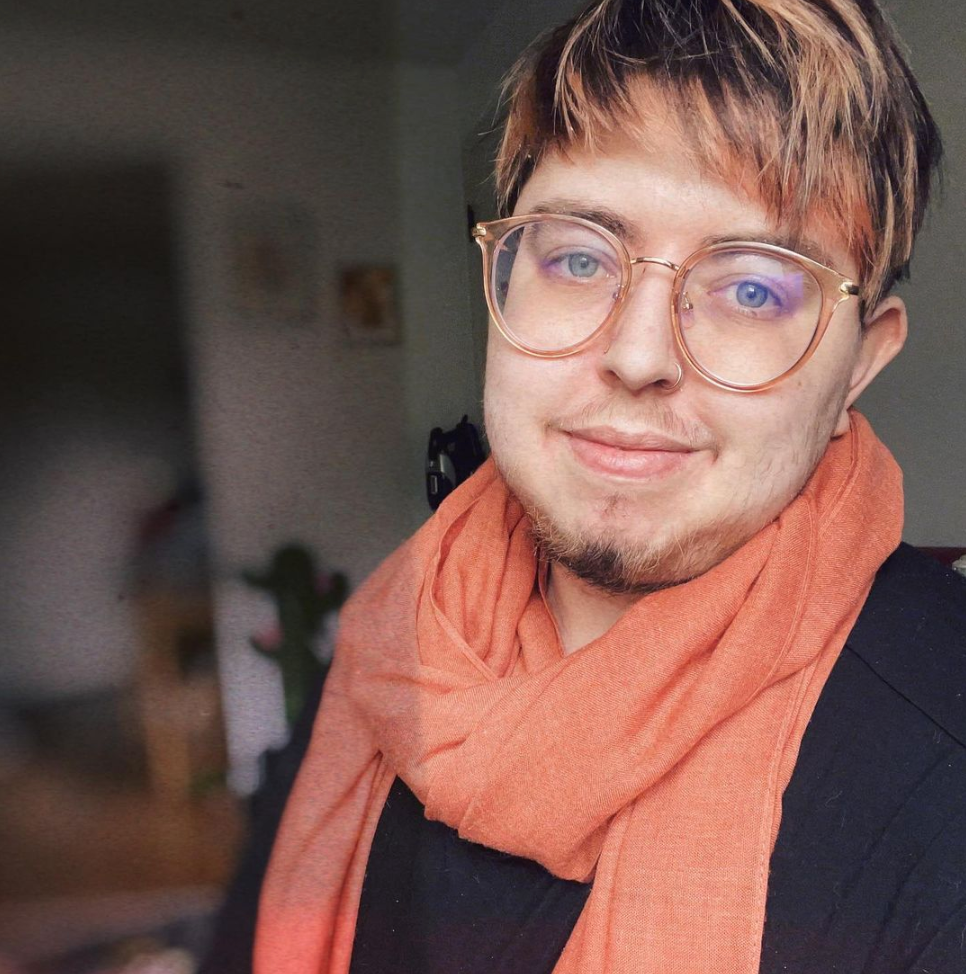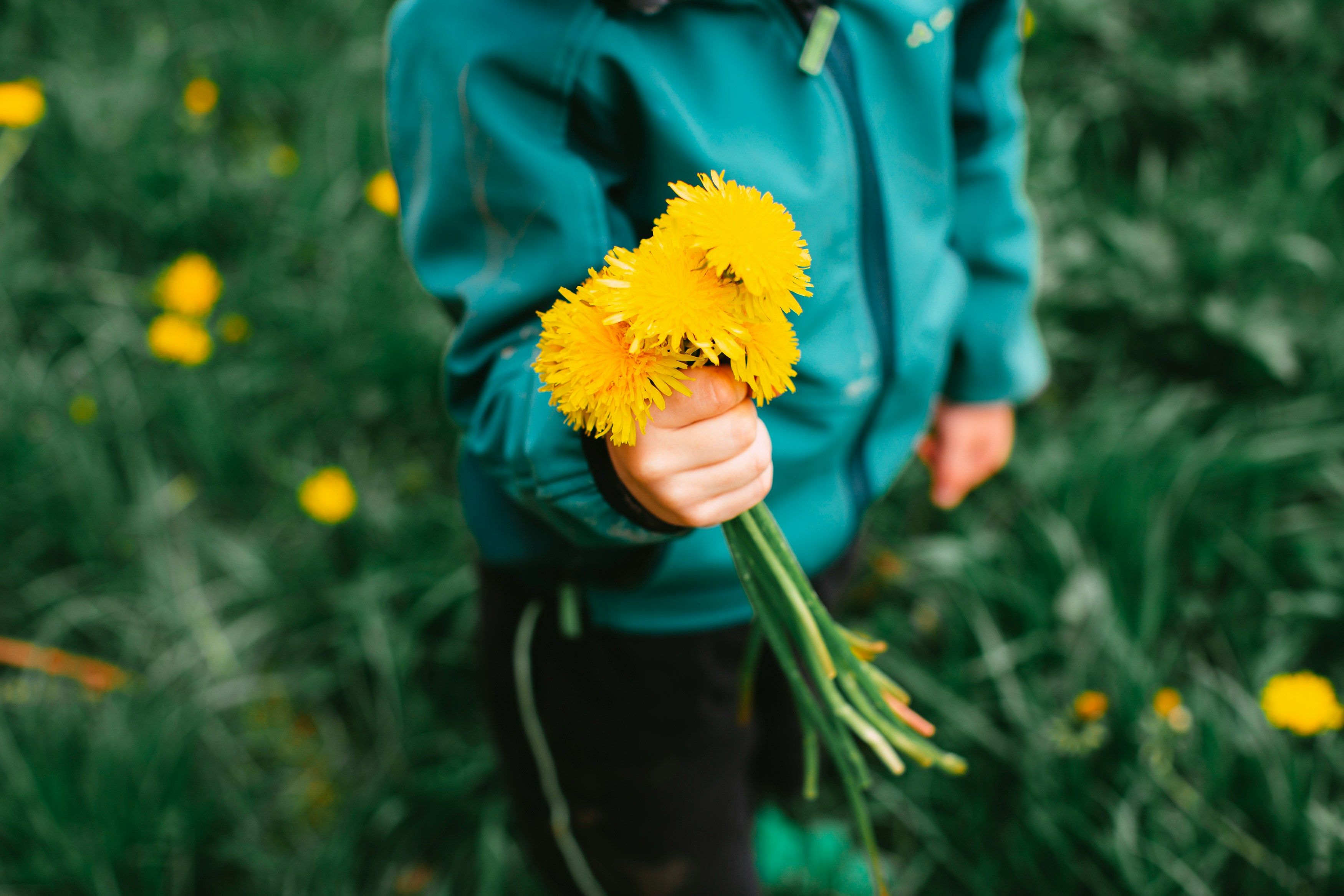
Honoring Us All: Healing After Adult Child Estrangement
⚠️ Editor’s Note:
This essay discusses suicidal ideation and attempts, self-harm, abuse, transphobia, and complex trauma, as experienced by a child through adulthood. Please take good care and protect your well-being should you choose to read it.
Last November, a few days before my 32nd birthday, I made the decision to stop speaking to my parents.
While I made the final decision in the midst of a heated conversation about pronouns, anyone close to me knows that this was about so much more than pronouns.
Over eight years ago, I came out to my family of origin as transgender.
I kept my name, “Sam,” in an effort to keep the peace. Still, I asked that my new pronouns, he/him, be used; I knew it would take time to adjust, I explained, but it was important to me, and I shared resources and offered opportunities to process it together.
Despite repeated and gentle attempts to redirect my parents over the years, they never really got used to it. And after eight years of this back-and-forth, the misgendering was still a near-constant; most of the time, they didn’t even notice.
Eventually I grew too tired to keep correcting them — it didn’t seem worth the fight.
I tried to ignore it for a while. But each time I tried to connect with my parents, it felt like I had to swallow a little bit of poison.
I had to endure a little bit of harm — the disrespect and erasure of misgendering, the diet and weight loss talk despite being in active recovery from anorexia, the subtle comments that undermined just how painful our history was.
Maintaining a relationship to them required some amount of pretending, some amount of abandoning myself for their comfort.
And for a long time, I didn’t understand that it was costing me something. Repeatedly betraying myself so that they never needed to change, grow, or reflect wasn’t really about “keeping the peace,” though for a long time, that’s what I convinced myself it was.
In reality, it was costing me my own peace just to protect theirs.
The night before our last conversation, an intuitive reader that I follow on TikTok was doing a live card pull, sharing oracle cards and their meanings with her audience. As I stopped scrolling to watch, the reader pulled another card, featuring a puppet attached to strings.
CUT TIES.
When I confronted my mother the next day, I didn’t plan to completely cut my parents off.
I planned to let her know directly how much the misgendering was hurting me, and to make a plan for how she and my dad could find support to work on this issue while I took a little space, temporarily.
Naively, I thought that if my mother understood how much pain this had caused me, she would be motivated to change it. I thought making myself this vulnerable would mean something. I was wrong.
When I told my mother that the misgendering wasn’t okay, initially, she quickly tried to apologize. She said she was sorry, that it wasn’t intentional, and that she was trying to work on it.
I emphasized that she’d actually had many years to work on this, and that I needed something more concrete to trust that she was going to change the behavior. I reiterated that this behavior was actually hurting me, and that it was impacting our relationship.
Somehow, the moment that I asked for something more than a blanket apology, everything was flipped back onto me.
Content Warning: The following passage includes a depiction of transphobia.
She said that if I flew back home and visited her more often, she’d have “practiced” my pronouns enough to remember them. She said that I didn’t seem invested in our relationship anyway, implying that I just didn’t like her. She said that “it would be a shame if I abandoned this family,” sensing that I had a foot out the door, hoping she could guilt me into staying.
None of that shocked me as much as the outright denial, though. She said that with respect to the misgendering, I was actually completely mistaken — implying that I must be misremembering it, or exaggerating, or maybe delusional.
She said apart from a few mistakes here and there, she was correctly gendering me almost all the time. She’d actually improved a lot, in fact, “and I’m sorry you don’t see that.”
I’m sorry you don’t see that.
I’ll admit it: The suggestion that I, the person being repeatedly harmed by her, was simply mistaken was the thing that outraged me the most.
The small child within me — who was so accustomed to being scapegoated by my parents, while they carried on as if nothing happened — came fully online at that moment.
This wasn’t new behavior, not by any stretch. It felt like I’d spent my entire life asking for my pain to be acknowledged, just a little. Asking for repair, sometimes even begging, just to be told that there was no such thing as “repair” between a parent and a child (or, as my father once told me when I was a kid, “This isn’t the f*cking United Nations, Sam”).
I didn’t want a quick “I’m sorry” from my mother — this was about pain, not just about pronouns. I wanted her to commit to making a real change, demonstrating that she saw me for who I truly was and that she cared enough to stop hurting me.
Instead, she told me that the pain was something I simply imagined. She wasn’t misgendering me much, if at all! She was reformed!
And for some reason, I was just too stubborn to acknowledge her improvement. Never mind the fact that I would’ve been the first to celebrate that change, had I actually seen it, because it would’ve meant everything to me.
To be honest, I can’t be completely shocked that she did this. For as long as I can remember, I’ve almost always chosen her comfort, too.
Content Warning: The following passage includes a depiction of self-harm, suicidality, and abuse.
As a child, it was learning to sob in silence by holding my breath and muffling it with a hoodie, so that my anguish wouldn’t disturb or anger anyone.
As a teenager, it was self-harming after every altercation, hiding the wounds under my sleeves later on while we sat in front of the television watching Survivor, as though nothing had happened.
It was lying to the school counselors who asked if I’d ever thought about suicide, and insisting my parents could do no wrong when they asked me if I felt safe at home.
It was lying again when a student reported to my guidance counselor that they’d seen the cuts on my arms. When he asked me how many times I’d done this, I insisted “just a few.” When he asked me why I did it, I blurted out: “I was nervous about my math test.”
It was begging my friends not to call 911 when they knew I was in danger, because I was more afraid of my parents’ anger than I was afraid to die.
It was considering asking for help, but then remembering what my mom told me when I was a kid, the one and only time I’d threatened to call the police because I was scared of her. To which she handed me the phone and said, “Go ahead. They’ll take you away and make you live with a family that treats you worse than we do.”
It was the seizure I had after a failed suicide attempt when I was 18 years old. Instead of crying out for help, I was convinced I would “get in trouble” for “what I did.” So all I could do was thrash helplessly, not knowing if I was dying — and if I was, wishing that I didn’t have to die alone.
When it finally passed, I went to bed, got up for school the next day, and pretended I was okay.
I wasn’t okay.
It was how often I chose to protect my parents from consequences, even if it put me in danger. It was how often I chose to keep my parents comfortable, even if it would cost me my life. It was how I was trained from birth to hide my pain and silence myself.
The intuitive reader’s words flash into my mind here: “What do you lose by giving away your power?”
There is incredible irony and grief in being told throughout my life that my parents would’ve died for me — that they would have done anything within their power to protect me — yet all the evidence I had suggested that the only one of us who came perilously close to death in an effort to protect someone was me.
When my high school phoned to tell them about my self-harm at age 14, I came home that day to a father who said, “Now you’ve opened a whole can of worms.” And a mother who had the audacity to ask, “Which of your friends are doing this?”
As if I had adopted a fad, that the cutting couldn’t be the result of legitimate pain that warranted professional help. As if my friends were engaging in this, rather than being the ones trying desperately to stop me.
Instead of getting me to a therapist, my parents banned my already limited use of social media, further isolating me from the peers who had tried to sound the alarm — a tragic and dangerous reminder that asking adults to intervene would apparently only result in me being punished.
One of my best friends from high school recently told me, “When you hung up the phone some nights, I learned to accept that it might’ve been our last conversation. Every day when I came to school, I was worried that I wasn’t going to see you there.
“I didn’t feel like I could tell anyone. I thought telling someone was going to make things worse.”
And that isn’t to say I’m the only one with a broken heart. I can’t know all that my parents sacrificed to bring me into this world. I can’t know all of the traumas and wounds my parents have experienced, though I suspect those wounds must be deep and devastating.
But I’m left with a painful truth: While I can never truly know my parents’ pain, I also can’t unknow my own.
And what I know is that, at age 12, a child began planning his suicide to look like an accident. Because while he couldn’t bear to live in that house anymore, he also couldn’t bear the thought of his parents blaming themselves.
Even when I was planning my last moments on earth, I was still thinking of how to make it easier on them… while asking for help never felt remotely possible or safe.
A child shouldn’t know what it feels like to suffocate up to the edge of death. But I learned that a few weeks after my 13th birthday.
And again a year later. And again.
And again.
Going “no contact” wasn’t about punishing my parents for this, though, or giving them the cold shoulder to teach them something. It wasn’t an attempt at forcing them to gender me correctly. It wasn’t a tactic to coerce them into giving another half-hearted apology.
It wasn’t even about changing them, because at that moment, I had finally accepted that I couldn’t.
In a lot of ways, it wasn’t about them at all.
It was for the 12-year-old boy who didn’t understand that he deserved protection.
It was for the 14-year-old kid who learned that asking for help meant getting in more trouble.
It was for the 18-year-old teenager who didn’t know there was a future.
It was for the 21-year-old who packed his things in secret, even though he couldn’t fully explain yet why it felt dangerous to leave.
It was for all the versions of me that chose my parents’ comfort over my safety, my well-being, and my heart.
Up until this point, I had never truly given myself the permission to say, “I do not accept this harm.” It took years in therapy just to give myself permission to acknowledge, “I was hurt.”
For years, I thought admitting that I was hurt was the worst thing I could do.
I believed that choosing myself and honoring the ways I was hurt would, in essence, be betraying them. I didn’t realize that, in trying to protect my parents from the reality of their own betrayal, I was actually abandoning myself.
Only in hindsight could I see how our relationship was only sustained by these repeated acts of self-betrayal — it was the foundation on which our entire family was built.
The illusion of “peace” in our family required that I pretend that I wasn’t being hurt; if I raised my voice in protest or tried to make my pain known, I was met with a punishment under the guise of being “disrespectful.”
Deep down, I knew that our relationship was untenable, because to keep it alive, it meant erasing myself. In this way, it was always about pronouns. Which is to say, it was always about acknowledging the truth of my experience.
If I molded myself into the desired shape — quiet, compliant, agreeable, pleasant, she, girl — I could get by. But if I assumed any other shape — queer, he, boy, survivor, truth-teller — the tactics to remold and control me were swift and nearly invisible, at least at first.
Going “no contact” was a last act of refusal. The refusal to be reshaped. The refusal to have my pain denied. The refusal to abandon myself for anyone else’s comfort.
From that day forward, estrangement became a promise I kept to myself, and to all of those younger versions of me, who were longing for their pain to be believed. My parents may not believe me, but I believe me.
Because while I can extend grace, softness, and empathy to those who are navigating their very human suffering, what I can no longer accept is being expected to forfeit my own humanity in the process.
I can meet my parents in many tender, honest, and real places, but to deny the reality of my pain is not a place I am willing to meet them anymore.
For months after that last conversation, I still struggled to reconcile how, in some ways, no longer having me in their life must have been a kind of comfort in itself.
I was angry at the thought that, now that we were no longer speaking, they were free of me. Which meant they were free to write whatever narrative about my absence suited them, uncontested, much like they’d always done.
I’ll admit, I didn’t want them to be comfortable. I didn’t necessarily want them to be punished, but it felt unfair that there would never be any real accountability. So long as they were unwilling to confront the shame of how they parented me, they would never comprehend the pain that I’d been carrying for so long.
It felt profoundly unfair that they could hurt me so deeply yet never have to acknowledge it.
In a support group just a few weeks after the last conversation, I shared, “The part that hurts me the most is that they never really knew me. Because to know me, you’d have to understand the pain that I endured. But they can’t confront that pain. They can’t hold it.”
I could feel a searing pain rip across my chest.
The facilitator of the group paused, and then smiled softly. “That’s the cosmic punishment though, isn’t it?” they asked.
“They can’t connect deeply with you, because they can’t connect deeply with those parts of themselves that they’re still ashamed and afraid of. All of the ways in which they can’t meet you are ways that they can’t meet themselves. And that will always limit them.”
The peace that this realization brought me in that moment was indescribable.
It wasn’t peace over my parents’ suffering — I don’t find any peace in their pain. I don’t find peace in the idea that they can’t live as vibrantly, love as deeply, trust as fully, emerge as authentically because they’re too ashamed to confront their own wounds. No part of me relishes that.
What I find peace in is knowing that when I live vibrantly, when I love deeply, when I trust fully, when I emerge authentically — when I face the parts of myself that I’m afraid of and the parts of me that I’m ashamed of — I am mending a generational wound. I am refusing to repeat it.
There is peace in knowing I am brave enough to do what my parents convinced me was impossible to hope for.
And there is grief there, too.
I don’t want a punishment, in part because I see the punishment they’ve already endured and continue to. My parents are already suffering.
They live in a minefield of their own traumas, trying to dodge any reminder of the parts of themselves that they don’t want to face. They would sooner rewrite reality than confront the idea that they’re anything but good.
To truly connect with me, they’d have to connect with the parts of themselves they’re most ashamed of.
They choose to remember the family vacations, the elementary school field trips, the sit-down dinners. And it’s not that those things are meaningless to me — it’s that they also choose to forget the screaming, the threats, the ugly things they said and did.
And I think they choose this because they feel that they have to.
They need to believe that they were good parents, because they’ve wrapped up their entire sense of self and purpose in the idea that they’ve been redeemed through their parenting.
They need to believe this because if they failed, it would destroy the one thing that gave them the illusion of healing: We didn’t hurt our children the way that we were hurt. We gave them what we didn’t have, which means we made everything right. They’re okay, so we’re okay.
If they did hurt me as deeply as I’ve described, what would that say about the lives they’ve led? They wanted nothing more than to create the family they didn’t have. What would it mean if they failed?
It is easier to reject my pain than face the annihilation of self that comes with fully accepting that, in many ways, they became the parents they swore they would never be.
That is a special kind of hell.
And while I don’t believe that I’m asking for too much by asking them to walk through that fire with me, I can also understand why they won’t. I don’t accept it, but I do understand it.
My parents are deeply suffering, and while I don’t know to what extent they realize this, what I do know is that I don’t envy them. I know that the “punishment” of sorts is constant and, in many ways, unbearable. If it were bearable in some way, I have to believe they would be more willing to see me.
The desperation with which they hide is an indicator of the degree of their own pain, whether that pain is actually felt or if they’ve simply become numb to it. The wound is there, whether they choose to feel it or they never do.
A cage is still a cage, whether you realize you're in one or not.
When I look at our shared past, I see that cage more clearly: No matter the cost, they white-knuckled through life, desperately hoping they wouldn’t have to look at the ways in which they were hurt and hurting others. The ways in which they were now repeating some of the unspeakable harms that they swore they wouldn’t repeat.
And knowing this, I see the turmoil of my childhood in a different light: I see the cage of generational trauma entrapping us all, and I see my desperate pleading for recognition of this pain, as though I arrived in the shape of a key.
Each time I named the unspoken hurt in our family, each time I protested or pushed back, each time I refused to comply with something that felt toxic to my spirit, each time I extended a hand and asked for repair — I was giving us a chance.
I thought I ruined our family by refusing to go along with things as they were. I thought my pain and my protest made me a burden. In a very literal way, it made me hate myself.
But what I know now is that there is a powerful offering inherent in that refusal: By bringing pain back into the room, by refusing to hide it underneath the bed or in the closet, I gave us a chance to be witnessed. I gave us a chance to heal.
And each time I was coerced into silence, taught to abandon myself and preserve the status quo, we moved further and further away from healing.
In protest, I gave my parents the opportunity to face themselves more deeply — to disrupt patterns, to confront shame, to shine a light on what was hidden — and in doing so, they had the chance to not only love and know me more deeply, but to love and know themselves.
Children who tell the truth are so often scapegoated without ever realizing the gift inherent in their truth.
The ways in which my parents can’t show up for me, and the ways in which they can’t see and love me, are also the ways in which they can’t see and love themselves. As the facilitator put it, that’s the cosmic punishment.
The mirror inherent in my own wounding was a chance for healing, giving them the possibility of reckoning with all the parts of themselves they learned to reject. My existence, in that way, was a cosmic gift.
A gift they couldn’t see — or simply weren’t ready for.
I understand the necessity of confronting shame wherever it lives in me, so I can more deeply love myself and the people around me.
I understand that everything I’ve ever wanted — unconditional love, safety, connection, trust, aliveness — has been waiting for me on the other side of fear.
I understand that while I may not be able to avoid hurting others, there is transformative power in self-honesty and repair; if I am willing to face the parts of myself that terrify me, there is often a deeper and more expansive love waiting for me there.
I understand that by loving myself fiercely — especially the parts of me I’ve been told were bad, shameful, or wrong — I am shedding the layers of false beliefs and stories that were never mine to carry.
I understand that by continuing to lovingly disarm the defensive and protective parts of me — the parts that choose the illusion of comfort to circumvent shame — I make myself even more available for authentic and powerful connection.
And in honoring all parts of myself this way, my heart can remain open in ways my ancestors could not have dreamed.
Because in order to love one another well, we have to face ourselves — all parts of ourselves. And the extent to which we are willing to do this will determine how unconditionally and how radically we can love each other and ourselves.
I grieve, more than anything, the ways in which my parents can’t love me, because it is a painful reflection of the love they were never shown.
In my eyes, there is no worse punishment than the life they’ve been denied (and, in a sense, denied themselves). The ways in which their world has narrowed and their hearts are still closed is suffering enough, and if they cannot bear the pain of self-discovery, it’s a suffering that has no end.
I don’t believe this to be a kind of justice, though. Justice, to me, would be a world in which they never had to suffer, a world in which I didn’t inherit their suffering.
But I understand now that healing doesn’t come from an apology from my parents, a brutal sentencing handed down, or really in changing them at all. It comes from coming back to myself. It comes from witnessing the ways I can now deepen into love, discover safety and trust in another, and soften into all parts of myself.
The intuitive reader’s words again come to mind: “What do you have to gain by setting yourself free?”
The love, joy, connection, and abundance I’ve found in the life and the people that I’ve chosen never required that my parents face themselves or even apologize — it demanded that I see the mirror in our relationship, and that I fully face myself.
I know that the ways in which my parents couldn’t love me are only a reflection of the ways in which they couldn’t love themselves. That’s a deep suffering I’ve known, too — I am far from a perfect person, and many times in my past, I’ve fully rejected others because I couldn’t face what our relationship might have revealed about me.
When I feel the resistance to someone else’s painful truth, I remember that I can trust the blessing to be realized in our repair. I remember that I would so much rather confront the shame of my mistakes, than live in the torment of an illusion that can only sustain itself through cycles of hurt and shame.
I remember that every person I meet is a mirror, and I can only love them as deeply as I am willing to face and call in all parts of myself.
I understand now why my parents’ love has always felt conditional upon my compliance. In a way, it was — they could only love the parts of me that didn’t ask them to face any parts of themselves. Everything else, they needed to control.
They chose their comfort because they believed the alternative was annihilation, but I am living proof that on the other side of shame is immense, boundless love.
And while I was never asking for too much by inviting my parents to show up differently, I accept that it’s been too painful for them to choose another way. It’s a legacy that didn’t begin with them, but I feel more sure each day that it will end with me.
In a very real way, this estrangement has illuminated the ways in which my entire existence has been a loud, gorgeous call to be awake. To witness and call home our whole selves, so we can witness and call home one another.
It is never too much to ask others to love you well.
I used to think that asking that of my parents made me a mistake, a disruption, a burden. But I see that invitation now for what it really is: A gift.
I cannot accept this invitation on behalf of my parents (or anyone else, for that matter), and I know my healing can’t be dependent on whether or not someone is willing to walk this path with me.
But I have come to radically accept that. Because I’ve seen that deeper connection and healing are a gorgeous inevitability in this work, should we choose this path for ourselves. And there is something so freeing in realizing that this is a choice I get to make, regardless of who joins me.
In meeting all parts of myself with care and honor, I have begun to love myself without the conditions I inherited. And in releasing those conditions, I can understand and honor the wounds of others, even if I cannot accept the choices they make from a place of wounding.
And importantly, this has given me the clarity and permission I’ve needed to let go of those who cannot or will not meet themselves this way at my expense — rather than desperately and urgently trying to change them, convinced that “fixing” them would somehow mend me.
This has changed my life in irrevocable and powerful ways, and continues to every day.
I can’t help but feel hope that, perhaps, this is a seed in the garden of a more just world — not an eye for an eye, not a debate about what is and isn’t forgivable, not a call for exile, but instead, a community’s shared and sacred vow to set ourselves free.
Maybe this is what it means to embody a more loving way in the world. A world where we are tenderly invited to face our shame, and in doing so together, we learn to love ourselves and each other so, so well.
I know now that the depth of my love, righteousness, and healing can only go as far as I am willing to meet myself.
This is not something I endeavor toward alone, either; I have healers, chosen family, community, and so many more who have held me through this process, showing me that there is no shame too great to be met with love, heart willing.
And while nothing justifies the pain of the past — not yours, not mine — I’m no longer afraid to be transformed by it.
I know another world is possible, not in spite of what we’ve inherited, but exactly because of it.
Mar 22, 2024

Looking for a therapist?
Get tips on finding a therapist who gets you.
By submitting this form, you are agreeing to Alma's privacy policy.
